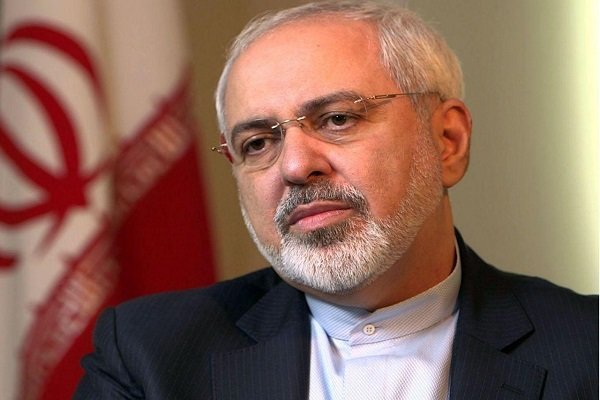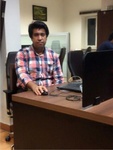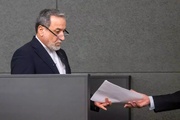Iranian Foreign Minister Mohammad Javad Zarif has written an article in Turkish Yeni Safak newspaper today before visiting the country tomorrow, calling for further regional cooperation in the face of foreign threats. The full text of his analysis is as follows:
Before the Islamic Revolution reached its goal in 1979, Iran was among the few Islamic countries that had good relations with Israel. Furthermore, the transitional Shah regime played an effective role in laying the groundwork for the signing of the Camp David Treaty between the Egyptian and Zionist regimes. This was not an ordinary event that would be acceptable by Iranians who had made the Palestinian cause an ideal of their own. Therefore, after the Islamic Revolution reached its goal, the first task of the revolutionary forces was to plant the Palestinian flag in the embassy building where Israeli diplomats had previously been. Since the Revolution and its leaders have constantly held the Palestinian cause as their ideal, from the very beginning they have not reached a consensus on this matter and have been willing to take on all the pressures, blockades and even direct or indirect warfare on this path. The Islamic Republic of Iran sees the problems of Palestine as its own, like all other friends and neighboring Muslims, and their security and freedom as their own security and freedom.
Joint security agreements must be realized
However, some try to use the Arab world for their own accounts and their greedy deeds. In contrast with them, the Islamic Republic of Iran believes that its security and stability depends on the security and stability of the region, especially all its neighbors. This should be a priority for everyone. In this context, the Islamic Republic of Iran has expressed its desire to actualize a joint security agreement based on mechanisms that spur dialogue, common principles and trust, and stated that it is ready to cooperate with all sides to ensure good neighborly relations, security and to protect common interests. At this stage, all countries of the region are responsible to their own people, history and future generations. The minimum conditions that exist today to terminate this lengthy chain may not exist tomorrow.
Game set up by foreign forces
Foreign powers that have been influential in the region have not left the opportunity to provide lasting peace by choosing the option of continuous and fierce wars in the region. They once backed the Saddam regime to attack Iran and Kuwait, and later fought it to overthrow Saddam. They supported Al-Qaeda and the Taliban in Afghanistan, and then they fought to dispel these groups from the country. Again, they used a group different from these under the guise of the struggle against radical organizations and for preparations to occupy and destroy Syria. Israel’s war against Lebanon, the illegal occupation of Palestinian lands, repeated violations of the Syrian airspace, and today – the location of massacres caused by western weapons for the past three years – the war against Yemen are all parts of these scenarios. Now we have to ask the question, what is the benefit of all these developments in our region and how has it affected the world?
Rise of ignorance wars
The politics for more than the past half century have brought the world to a point we can call a crisis. It seems that today's world has reached a dead end. Thus, the sciences and historical rules underlying international relations have been unable to govern these ties. While the Middle East region has gradually turned into a geographical area lacking minimum security due to ethnic, sectarian, religious and tribal conflicts, this region, which has many nations with common interests and few disputes, has become a commodity with no safety. Let us not forget that Arabs, Turks, Persians, Kurds and other nationalities living in the region have a common tradition, the same culture, similar tongues, and customs, which interacted with each other throughout history. Why do we choose to leave these commonalities and allow ignorance wars which leave behind nothing but teary-eyed mothers to be sparked by feelings of animosity and hatred?! We do not want to witness long bloody battles again. If we do not want to see the repetition of such a scene in our history, we should sit down and discuss our differences at the table, not on the battlefields!
Differences in views should not overshadow friendships
Of course this does not mean that we forget differences of opinion. Our wishes and disagreements should not overshadow friendships. The proposal for the restructuring of the region of the Islamic Republic is aimed at respecting the differences of views, as well as the provision of the interests of all the countries in the region. This is because preventing the restoration of the dominance of powerful countries over other countries is the basis of this restructuring. Thus, small countries in the region will have the right to participate in matters and affairs and will be able to protect their interests.
It is based on common procedures and principles such as our common security with our land and water-bound neighbors, the right to a certain sovereignty as determined by the United Nations, avoiding the use of force and threats, resolution of crises with peaceful resolutions, respect for the sovereignty of states and their territorial borders, and the right of nations to determine their own fate. The manifestation of the aforementioned joint security requires confidence-building measures such as joint military exercises, intelligence sharing, transparency in military initiatives, the reduction of military budgets and mutual military visits.
Iran is once again loyally extending its hand to its neighbors, as it always does. This is not just a demonstration, it is a strategic option of Iran. Because Iran believes our common interests are far greater than the differences of opinion arising from unfounded anxieties and temporary interests that will not be a priority in the years to come. If we do not choose peace, future generations will not have the opportunity to sit down across from one another to meet and share dialogue.
KI/PR



























Your Comment